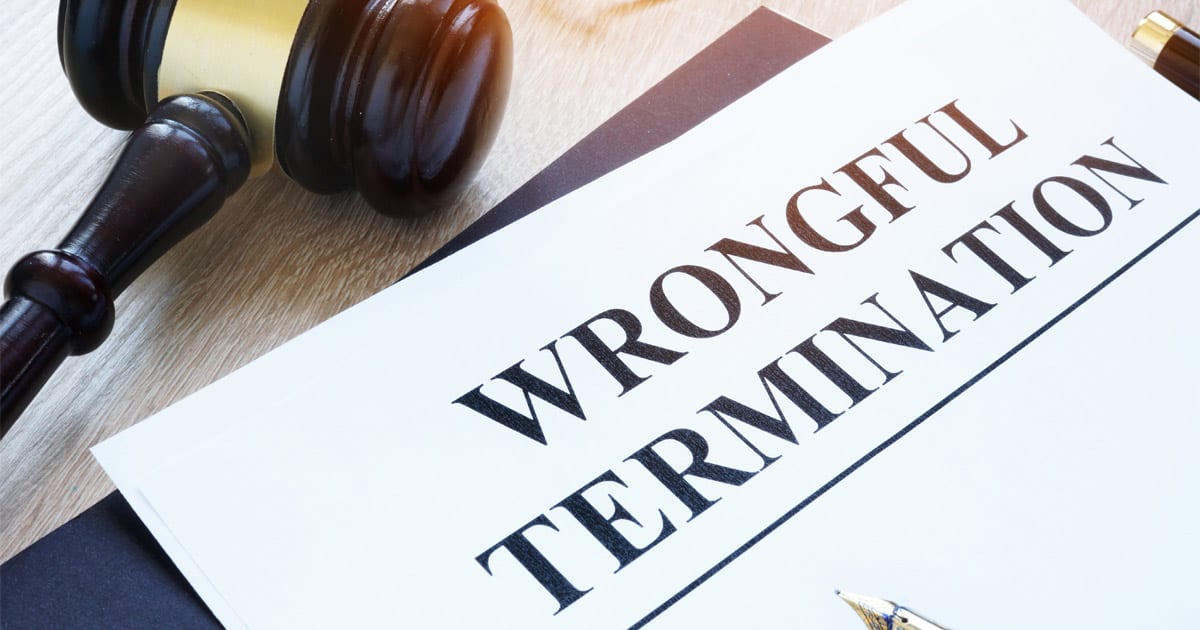Workers who have been wrongfully terminated from their jobs can pursue legal action against their employer and recover compensation. There are several scenarios that might trigger a wrongful termination lawsuit, including discrimination. Wrongful termination lawsuits can be an unfortunate experience for both the company and the employee, and it is important for employers to adhere to ethical business to avoid putting themselves and others through that experience.
Common Wrongful Termination Lawsuits
It is important for employers to understand their obligations to employees, including unlawful reasons for terminating their employment. An employee cannot be let go because of their age, race, religion or perceived religion, gender or gender expression, sexuality, disability, pregnancy, or other attributes protected under discrimination laws. If an employer has created a hostile work environment or applies workplace policies inconsistently among their employees, this can also be grounds for a wrongful termination claim. If a worker’s employment contract specifies the length of employment, and the employee has met their stipulations of the contract, the employer can be sued if they try to terminate the contract early or otherwise violate the agreement.
Employees cannot be fired in retaliation for whistleblower activities, such as reporting illegal activity committed by the company. Retaliation claims have been steadily increasing over past decades; between 1997 and 2017, the rate of retaliation complaints rose from 22 percent of workplace discrimination claims to 45 percent. Employers cannot take disciplinary action against employees who report unlawful or unethical activity, up to and including termination.
Laws Governing Wrongful Termination
Employers must ensure that they are compliant with both state and federal laws to avoid a wrongful termination lawsuit. Often, wrongful termination is a violation of the Equal Employment Opportunity Act, which prohibits employment discrimination. There are quite a few laws that may come into play in a wrongful termination lawsuit, including the Occupational Health and Safety Act, the Equal Pay Act, the Fair Labor Standards Act, the Family and Medical Leave Act, and other laws that prohibit discrimination, such as the Civil Rights Act, the Age Discrimination in Employment Act, the Americans with Disabilities Act, and the Genetic Information Nondiscrimination Act. Small businesses may not have the resources to keep up with all of these laws, so they may wish to engage a Professional Employer Organization to ensure that they stay compliant.
Having comprehensive employment policies in place are key to preventing wrongful termination lawsuits. Employment contracts and manuals should comply with state and federal employment laws and not make unlawful demands of employees. Employee reviews and disciplinary actions should be documented to ensure that policies are being applied to employees without discrimination. This includes reasons for termination and any corrective action leading up to the termination, even if the worker is employed at-will.
Philadelphia Employment Discrimination Lawyers at The Gold Law Firm P.C. Advocate for Wrongfully Terminated Employees
If you believe you were the victim of wrongful termination, call the Philadelphia employment discrimination lawyers at The Gold Law Firm P.C. We will thoroughly review the facts of your case and pursue an aggressive legal strategy to protect your rights and obtain the compensation to which you are entitled. With offices conveniently located in Pennsauken, New Jersey and Philadelphia, we represent employees throughout South Jersey and southeastern Pennsylvania, including Wilkes-Barre, Scranton, northeast Philadelphia, Bucks County, Chester County, Delaware County, Montgomery County, and South Jersey. Call us today at 215-569-1999 or contact us online for a free consultation.



































